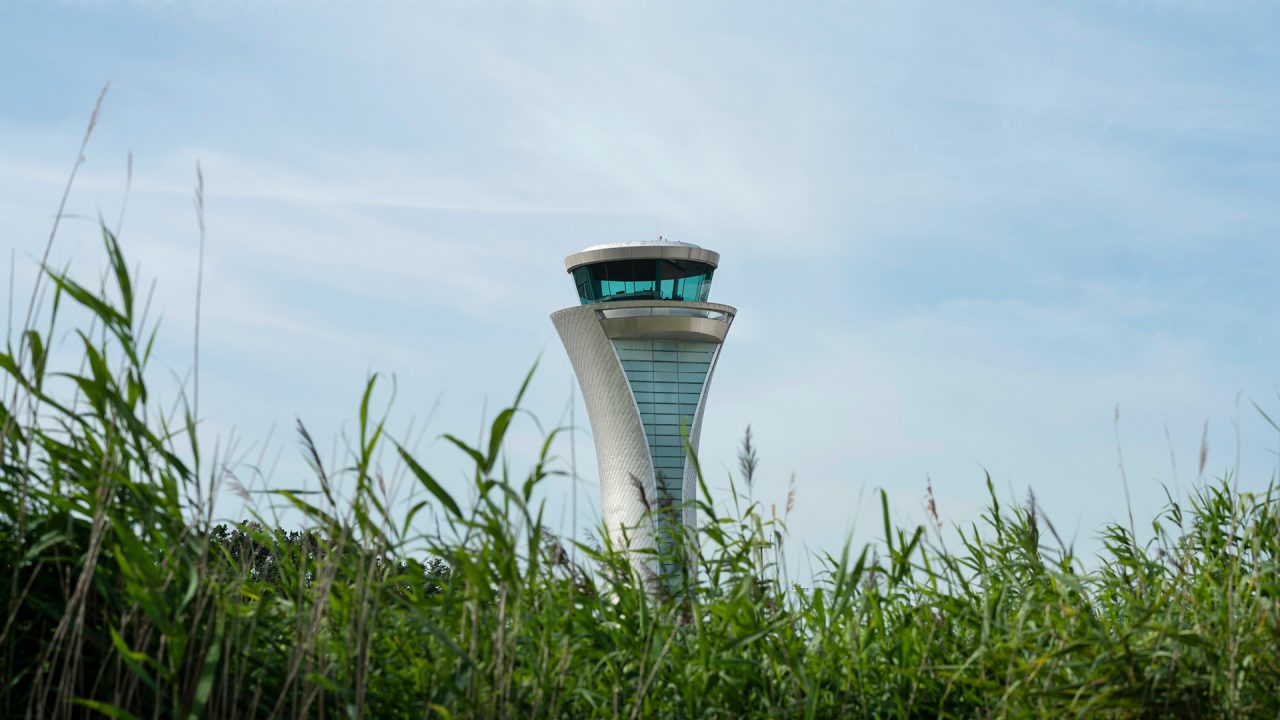

Infrastructure
| Sector | Infrastructure |
| Sub-sector | Transport |
| Location | United Kingdom |
The efficiency and reliability offered by business aviation make it an important contributor to sustaining any dynamic, outward-facing economy. However, scarce capacity in the London airports system has seen business aviation traffic gradually displaced from major airports, reinforcing the need for dedicated facilities catered to supporting this important passenger segment.1
Macquarie identified a series of projects to enhance Farnborough Airport’s capacity and appeal, aiming to distinguish the airport as a centre for the UK’s fast-growing aerospace and aviation industry.
With Macquarie’s support, Farnborough Airport has set out ambitious sustainability plans. Building on its legacy as the world’s first business aviation airport to achieve carbon neutral status,2 Farnborough Airport committed to achieving net zero by 2030 for all emissions under its direct (Scope 1) and indirect (Scope 2) control.3 Farnborough Airport also began exploring opportunities to help airport users reduce their emissions, including the rollout of electric vehicle charging infrastructure and schemes to accelerate the adoption of sustainable aviation fuel.
Outcome
The project is being accompanied by investment in additional aircraft stands and expanded taxiways to accommodate growing traffic and next generation business aircraft.
Farnborough Airport invested in its first electric ground power unit – marking the start of a wider transition to replace all the airport’s diesel ground power units.3 To deepen its commitment to sourcing all its electricity needs from renewable energy, the airport also began scoping additional opportunities for investment in onsite solar power generation.
Aiming to help aircraft reduce lifecycle carbon emissions by up to 80 per cent,5 Farnborough Airport made sustainable aviation fuel available to all airport users. To incentivise its adoption, Farnborough Airport became the world’s first airport to offer the fuel at the same price as standard Jet A1 fuel in the run-up to the globally renowned Farnborough International Airshow in 2022.6 The airport also introduced incentives for staff to lease electric vehicles and established charging points across its estate to encourage the take-up of low emission vehicles by passengers.
As the home to the UK’s first airfield and powered flight, Farnborough Airport has a long and storied history. We’re committed to building on this legacy, providing the focus and investment needed to ensure its ongoing contribution to the UK economy.”
Gordon Parsons
Senior Managing Director
Macquarie Asset Management